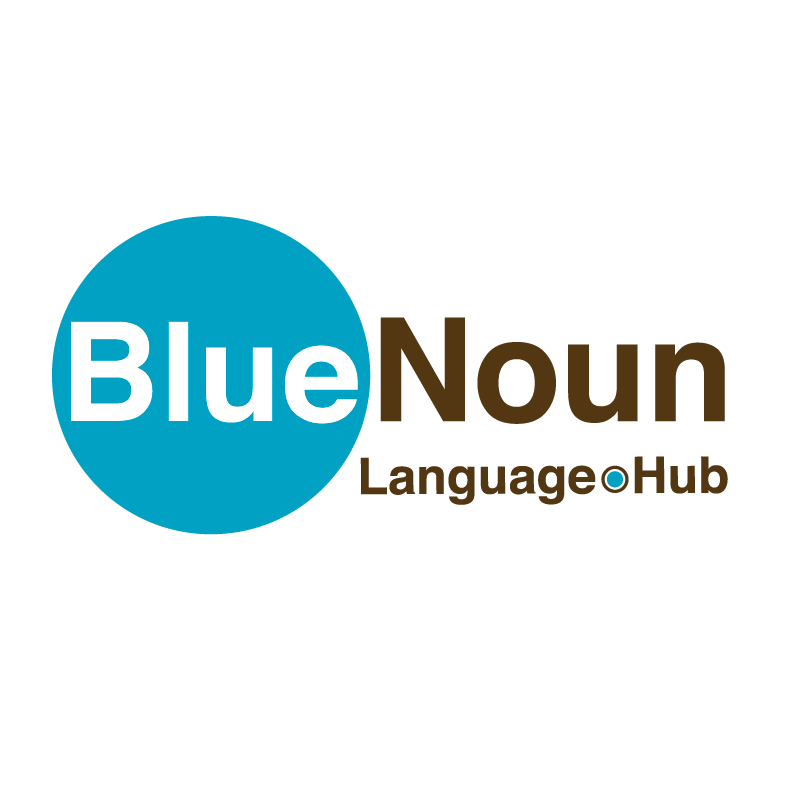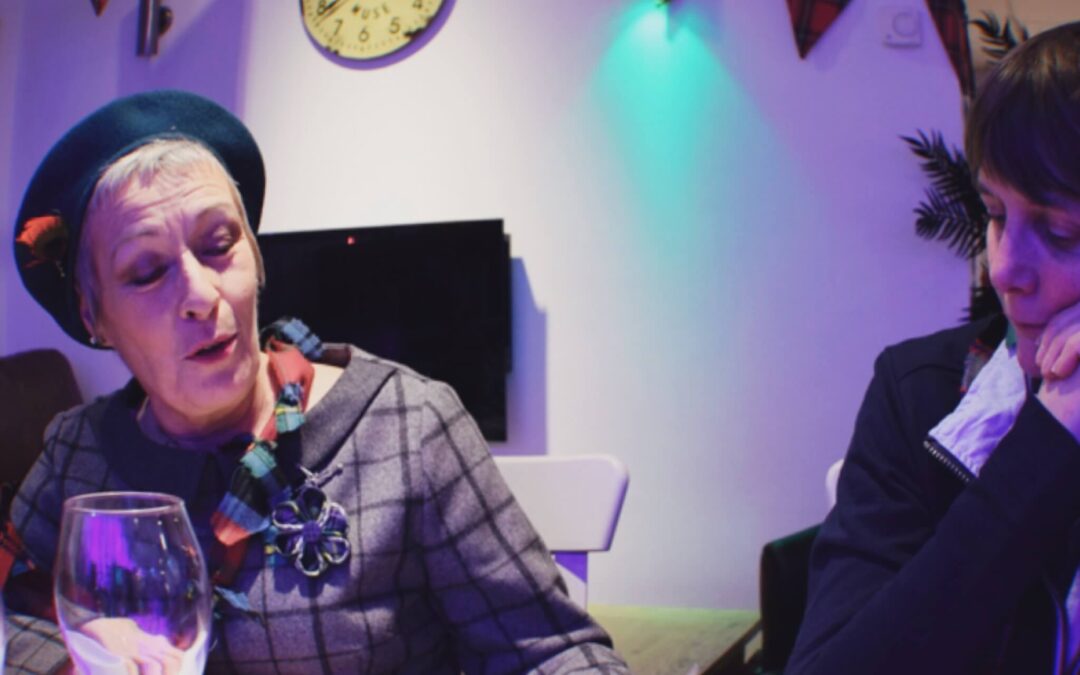Is it Time to Break Traditions?
Does your English language school celebrate national events like Burns Night?
Read our blog to find out why Blue Noun Language Hub absolutely does – but not with flag-waving or cheap props.
Rather, we use important dates in the Scottish calendar as an opportunity to celebrate and explore the past and contemporary culture of our nation, inviting friends in our local community to join us and share their stories across good food and drink.
Choose a Language Hub
A language hub is a place where good conversations happen, cultures mix and life-long friendships are forged.
In other words, real experiences not role play.
We do things differently from commercial language schools.
Find out how by reading about our language school events such as Burns Night.
“It makes me cringe to see other language schools put cheap costume hats and flags into their students’ hands for photographs, expecting language learners to care about an aspect of culture or a significant date with little explanation.”
Ruth, 2020
Free English lesson!
English learners: read on to the end of this post: as usual, we have a practice exercise for you to get your English skills working to explore the concepts we talk about in our blog.

Burns Night Traditions 01: Poetry Reading
Friends of Blue Noun Language Hub joined up with our current group of students for a non-traditional Burns Supper.
There is much to learn from commemorating the people of the past. Burns poetry is remarkable and funny and beautiful – and we wanted our guests to get this flavour, without spending too much time on language which wouldn’t serve them well to learn.
Today’s Scotland is very much a multicultural land, and we wanted our celebration to be about that too.
Here’s a taster:

A Break from Tradition: Spoken Word Performance
As a language school event, we have to acknowledge that a whole evening spent exploring Burns Poetry (written in Scots) has limited appeal for English language learners – unless we take the spirit of the poetry – the romance and humour – and put it into simpler language.
Fabulous Edinburgh Fringe comedian and storyteller Lolie Ware told a story about a time that the lyrics of a Del Amitri song chimed not only with her life but with Edwin Morgan‘s poem, ‘One Cigarette‘. It was very funny and heartfelt.

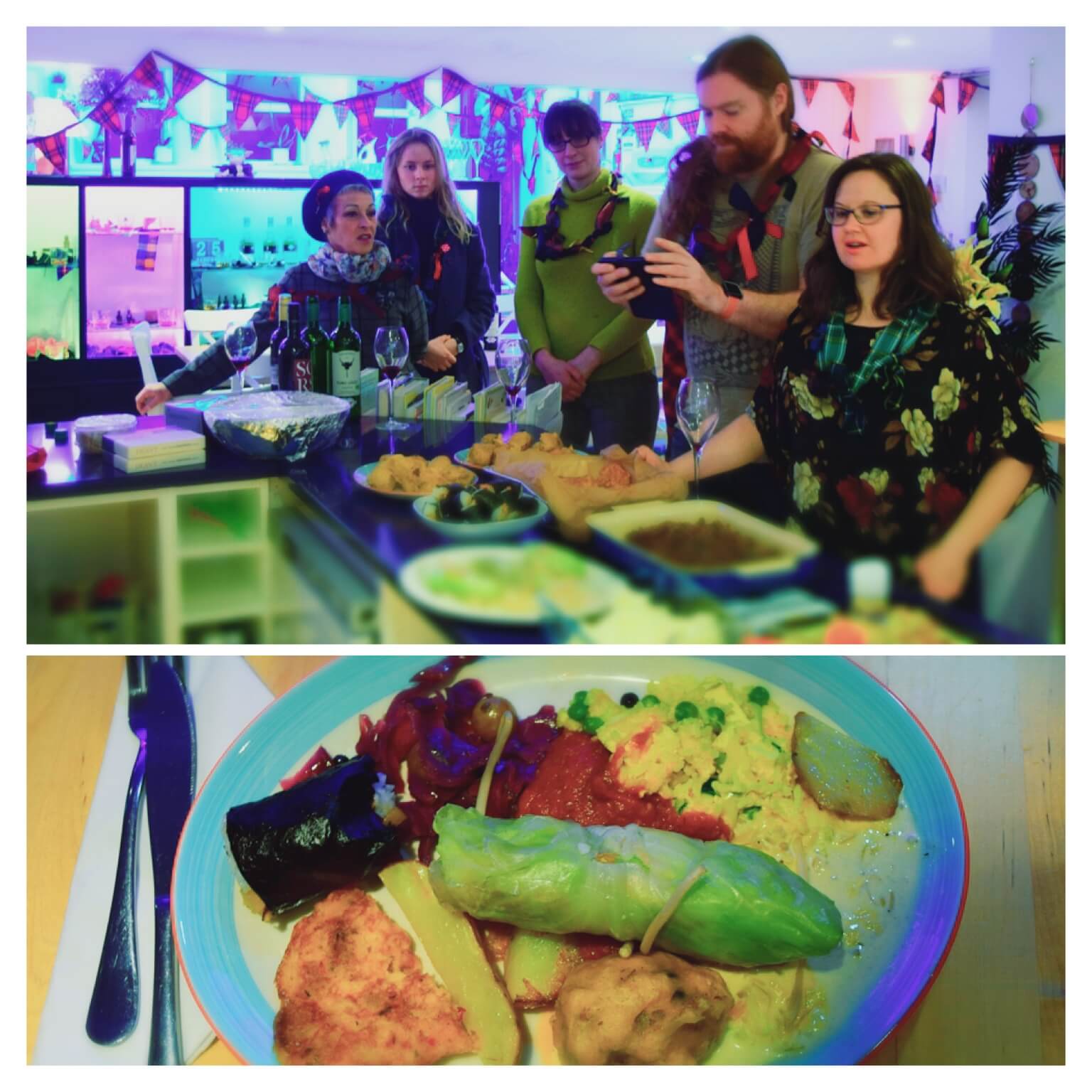

Burns Night Tradition 02: A Meal (Haggis, ‘neeps’ and ‘tatties).
We made sure the traditional fare was there for the purists but we had many extras too.
Our menu took traditional Burns Night fare (haggis, neeps and tatties), but embraced the international influences which shape contemporary Scottish cuisine.
One of the many reasons to repeat this meal through the ages is to remember that the history of Scottish people was one of extreme hardship and poverty.
Haggis these days is a bit of a designer item. It certainly wasn’t back in the days of Burns, but although made of entrails, it was one of the few ‘meats’ that people had access too and it was a luxury for this reason.
Arguably, a Burns Night should keep these flavours – which have travelled over generations pure. However, we adapted to our modern audience too.

Burns Night Tradition 02: ‘Tartan Tapas’
We decided not to promote one culture exclusively and open our hearts wide to traditions worldwide.
To begin with, at least half our guests were vegetarian. Yes, you do get ‘vegetarian haggis’, but as haggis is a celebration of having meat to eat when you are starving, it seemed best to go for a different celebration of food.
We decided to celebrate international influences, and went for ‘Tartan Tapas‘ this year!
The dishes we served at our language school event for Burns Night included seafood kedgeree, vegan kedgeree, haggis pakora, turnip dim sum, patatas bravas with tomato and paprika sauce, vegetable sushi, colcannon, and plantain pancakes.
We chose a Spanish red wine for the table.
For pudding, we had a quite boozy cranachan (and Charmaine made an extremely boozy vegan version).
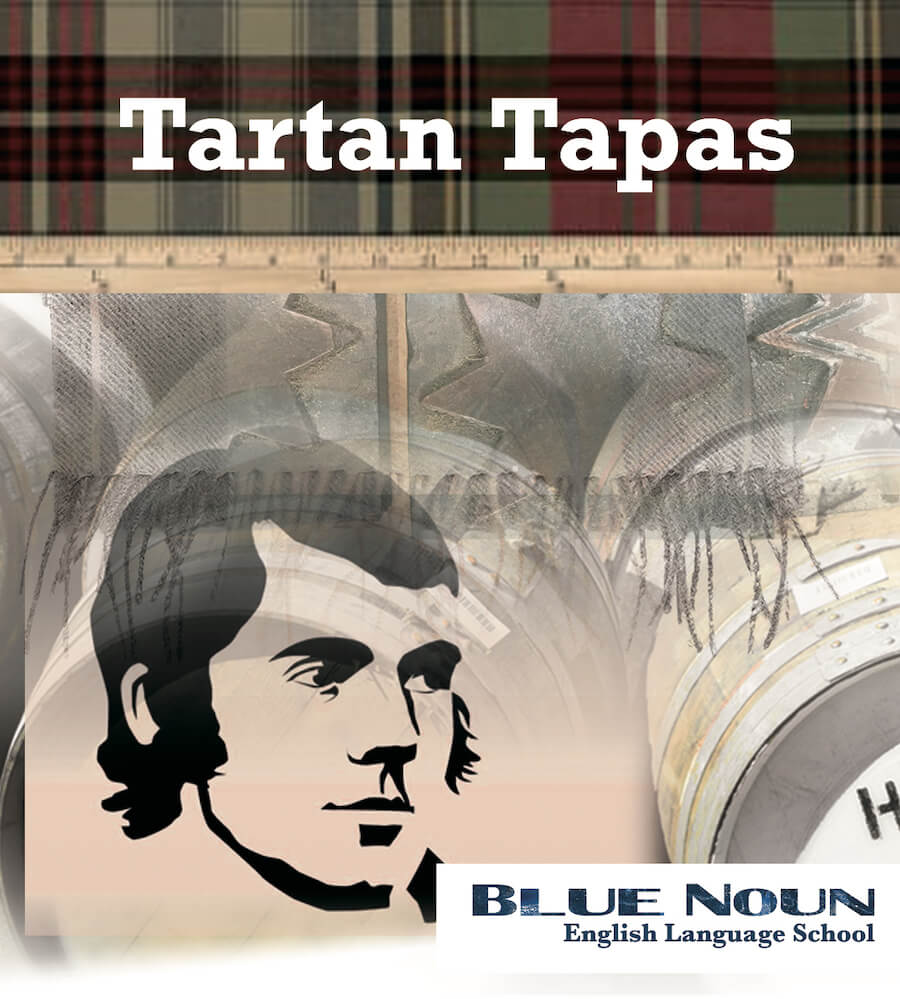

Burns Night Traditions 03: Whisky to ‘Toast the Haggis’
In the spirit of a true Burns Supper, we also had a selection of whisky to discover, including featuring our local distillery (drink local they say!)
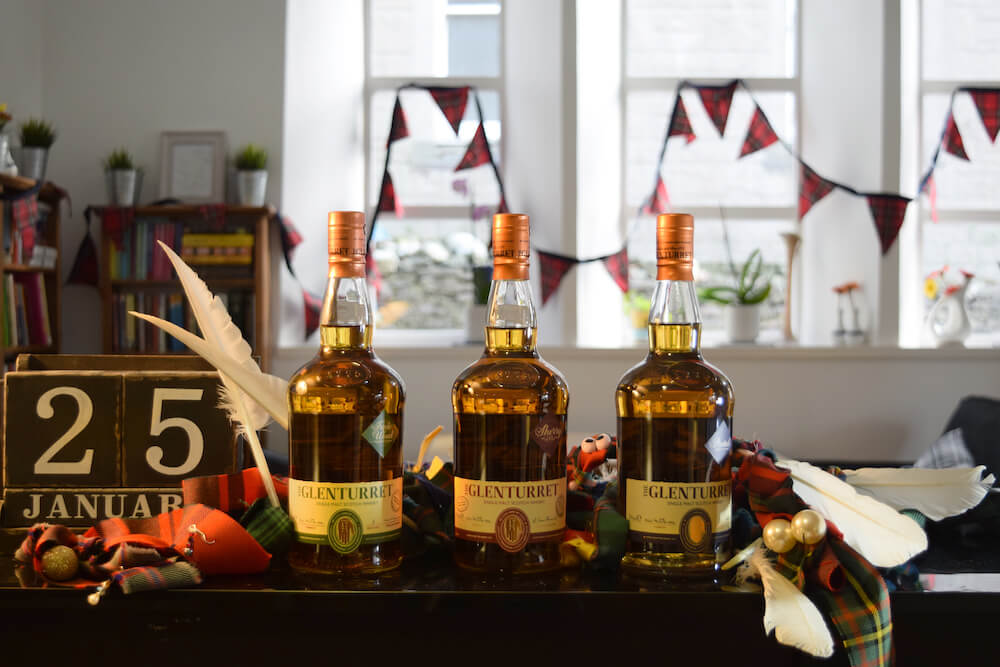
“We had such good company this Burns Night – and we’re not (just) talking about the whisky.”
Ruth, 2020

We Modified Traditions
For our non-drinkers, we had Whissin, a Spanish no-alcohol whisky substitute. Delicious.
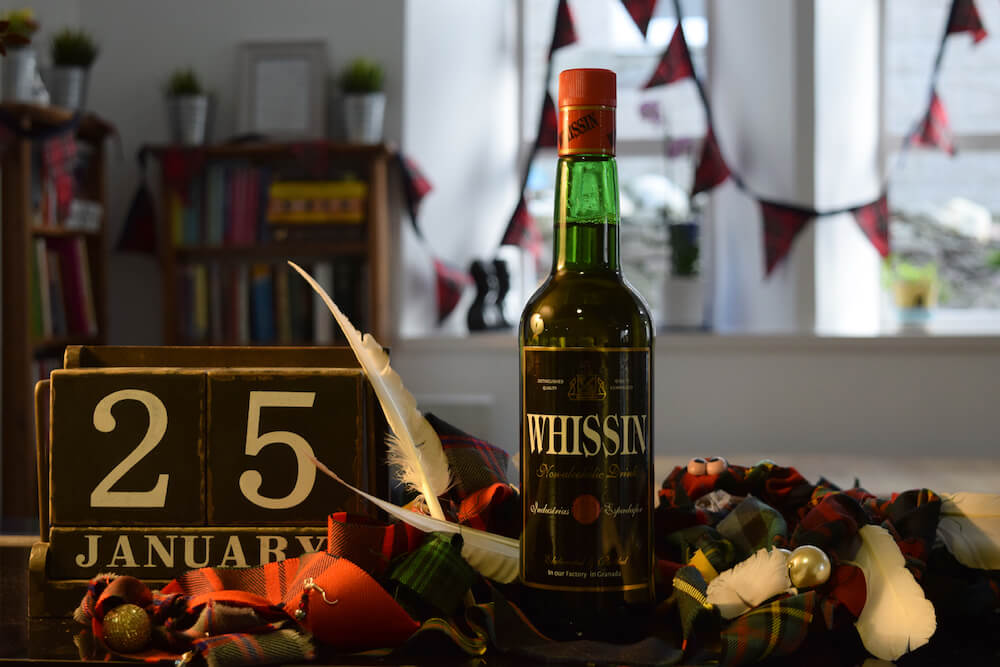

Burns Night Tradition 04: A Piper and Bagpipes
For some things, we just needed to start our own traditions.
Kenny was in charge of playing some of our favourite Scottish musicians.

About the Music
Our guests enjoyed an evening of superb Scottish music – but not the traditional Scottish pipe band sound you might expect.
Contemporary Scottish Folk music is rich in references to the sounds of the past as – well as modern-day and international influences.
Playing music like this gave our guests a more interesting experience of contemporary Scottish music – playing them music we adore and music that will keep them interested in Scottish culture way beyond their English language holiday.
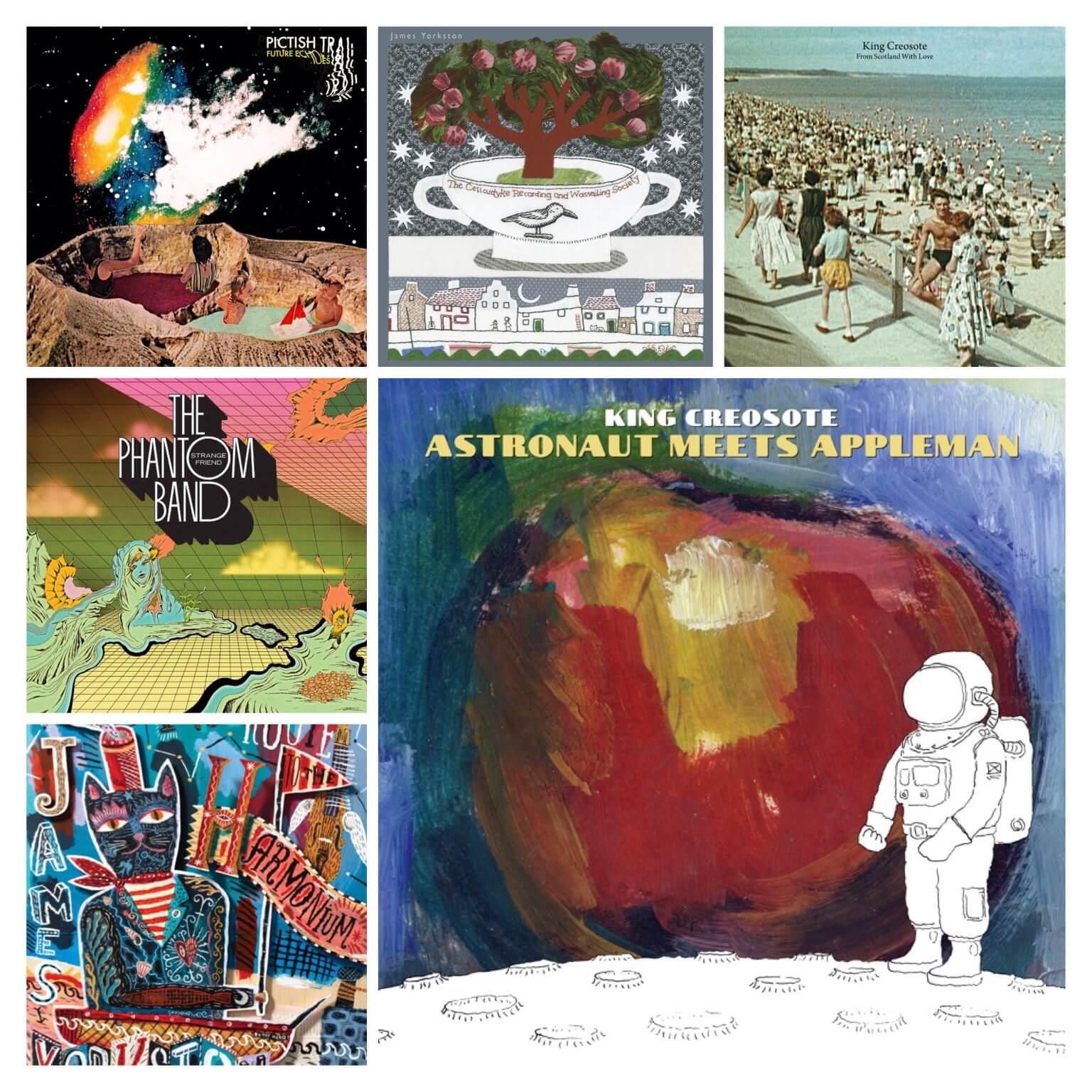
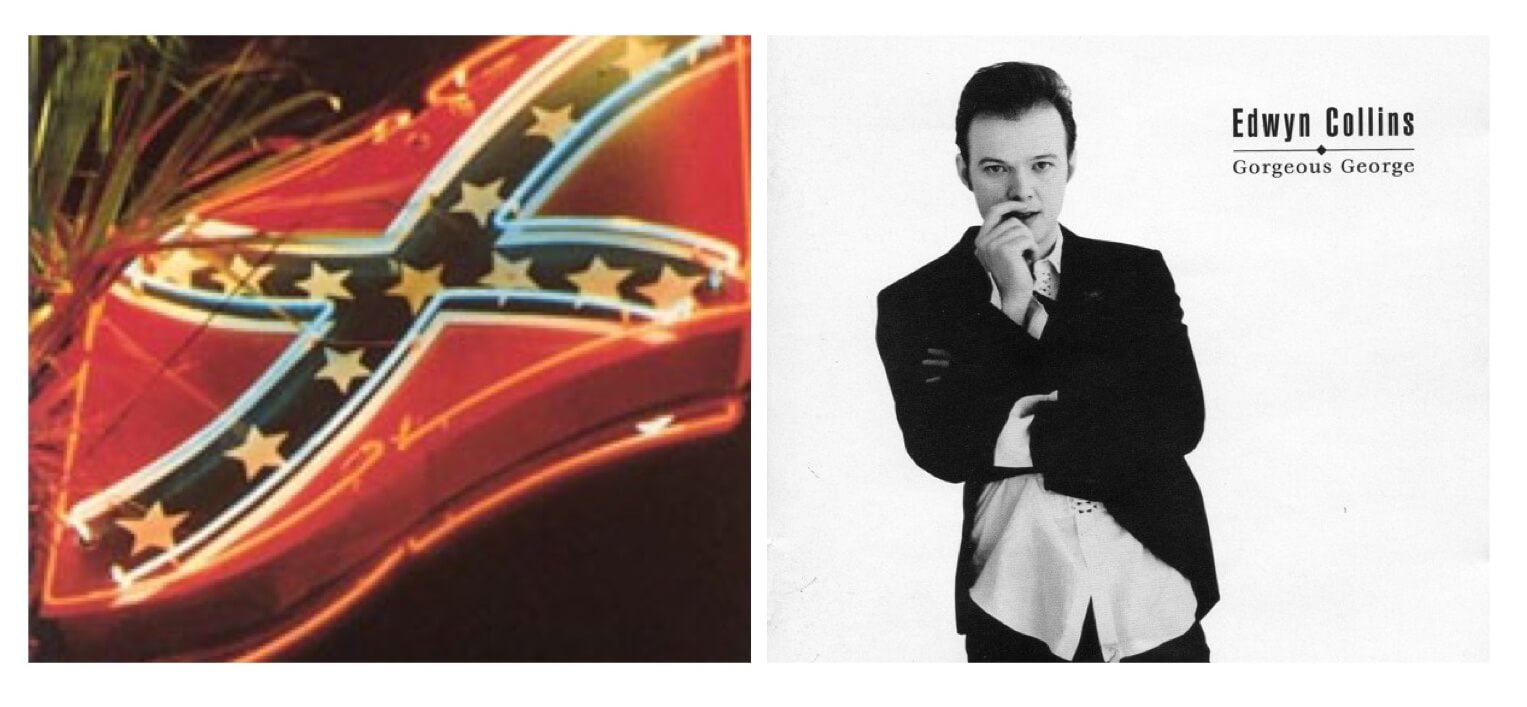
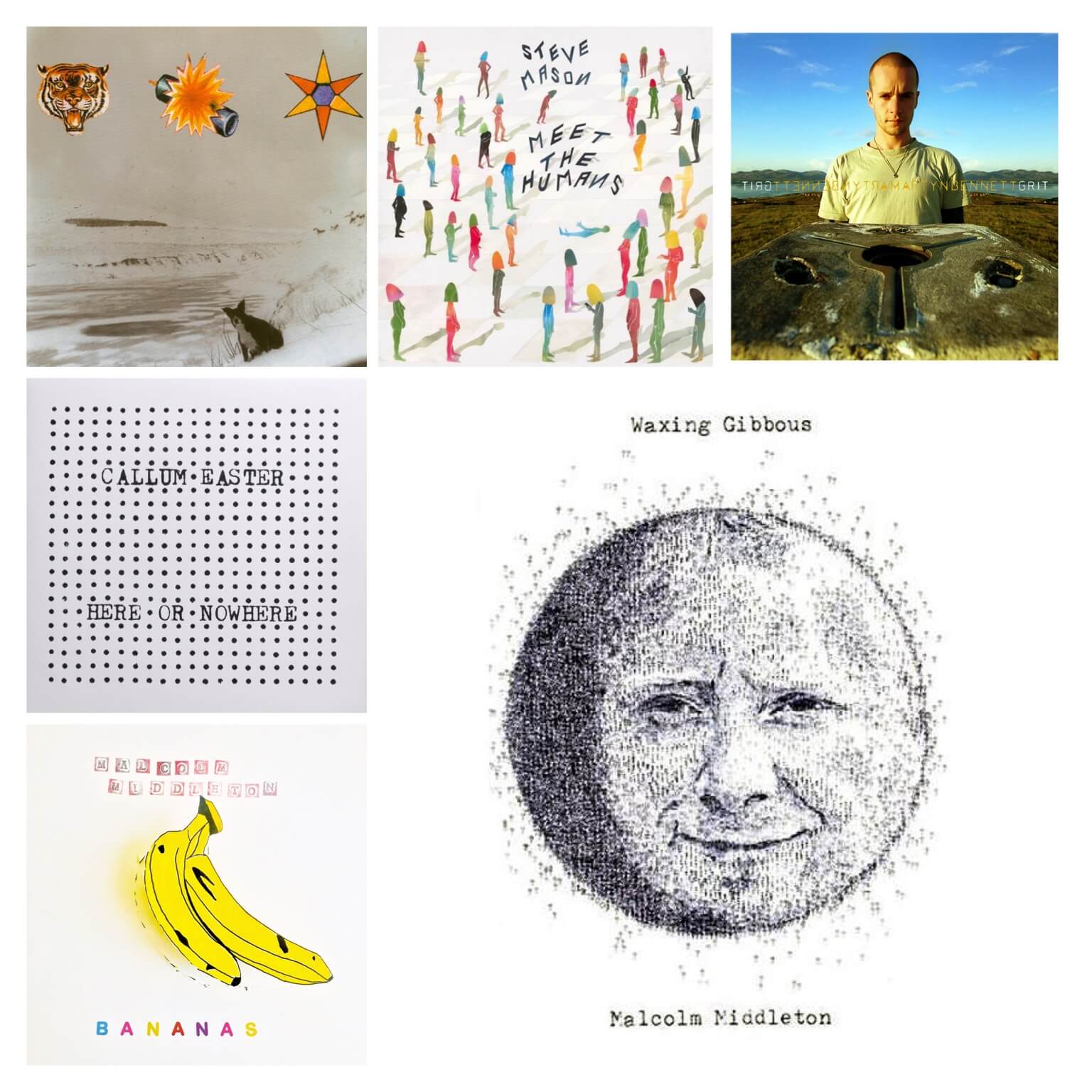
Our Playlist

More About Our Neighbours | The Glenturret
The Glenturret Distillery is the oldest continuously working distillery in Scotland. It’s based just outside Crieff, making beautiful whiskies from the rushing water of the River Turret.
Friends as well as neighbours, at Blue Noun English Language School we often take our language learners on their excellent distillery tour as part of our Meet the Makers activities. English learners discover traditional processes and craft – combined with modern technology, marketing and presentation.
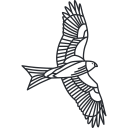

Get Talking with our Language School
At Blue Noun, we love chatting about all things art and celebrate having excellent, talented people all around us to do it with.
We facilitate real cultural and creative exchanges happening, whether it’s in our language learning space – the Blue Noun Hub – or out and about visiting studios and workshops and places of cultural interest.
We also love showing off the beauty of our region and the food and craft produce that is making it world-famous.
Our whisky tastings are legendary!
Made for the Community
Our business is intended to be of benefit to the artist/maker economy of Perthshire.
We bring our international creative guests into studios for a genuine exchange of cultures and art-making.
Yes it’s an English lesson, but it is so much more!
In addition, we pay all our artists and guest speakers for their time.
Come and join us for an English language learning holiday and grab a taste of Perthshire!

Your English Language Challenge
We offer you a practice conversation opportunity with every blog.
Today, we are asking you,
Did we strike the right balance?
Should we have kept traditions pure and only served a traditional haggis Burns supper? If we break traditions, do we lose the point in the celebration entirely? Should we only have had medieval flavours or do our international flavours successfully represent the contemporary Scotland that we want to celebrate?
At what point is it cultural appropriation to include symbols and flavours from other cultures?
As usual, if you want us to correct any sentences, just write CP (correct please at the end of your comment).
Did we strike the right balance?

Further Information
If you have a taste for contemporary Scottish folk music now, read about Blue Noun seeing the amazing King Creosote in Perth Concert Hall From Scotland With Love
Read more about Burns Night here and how this language school celebrates here.
